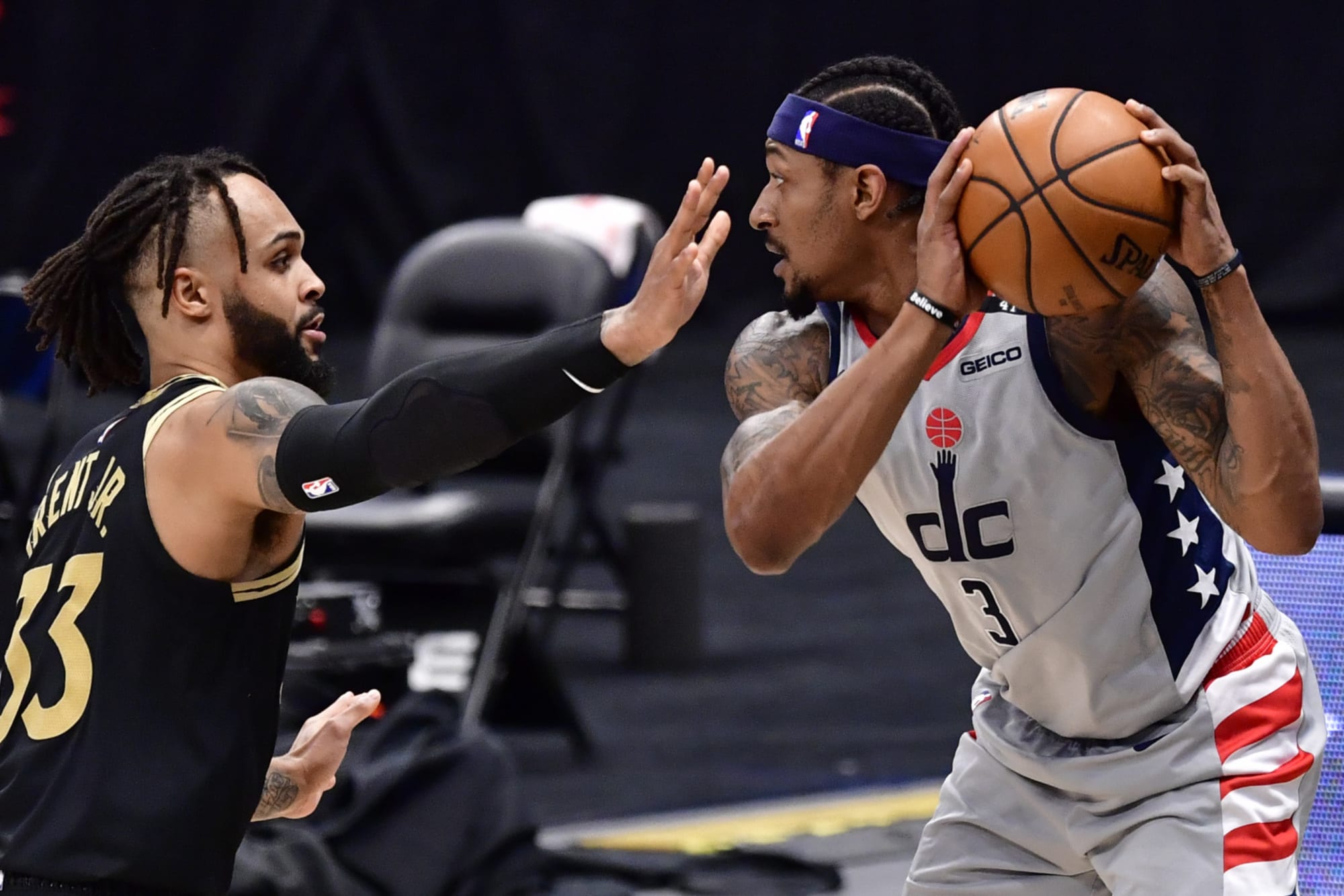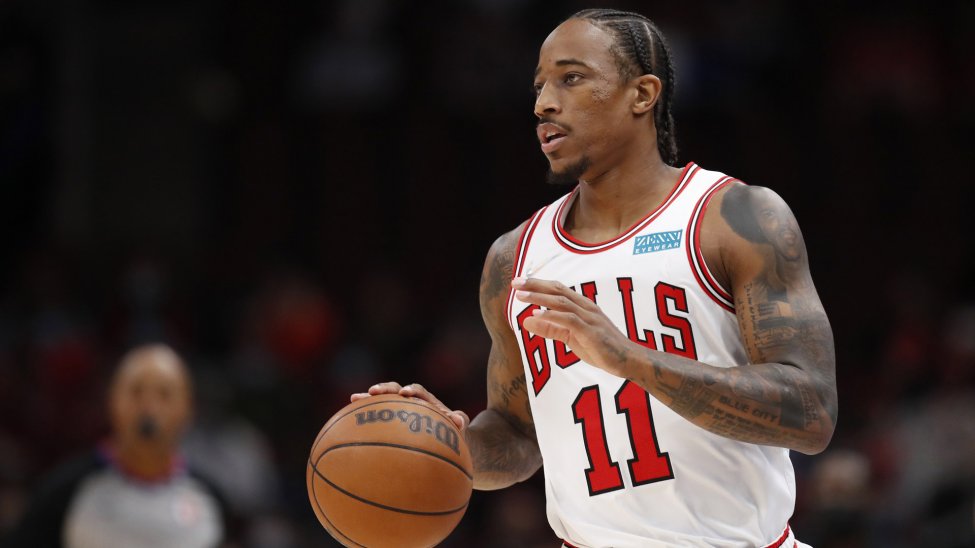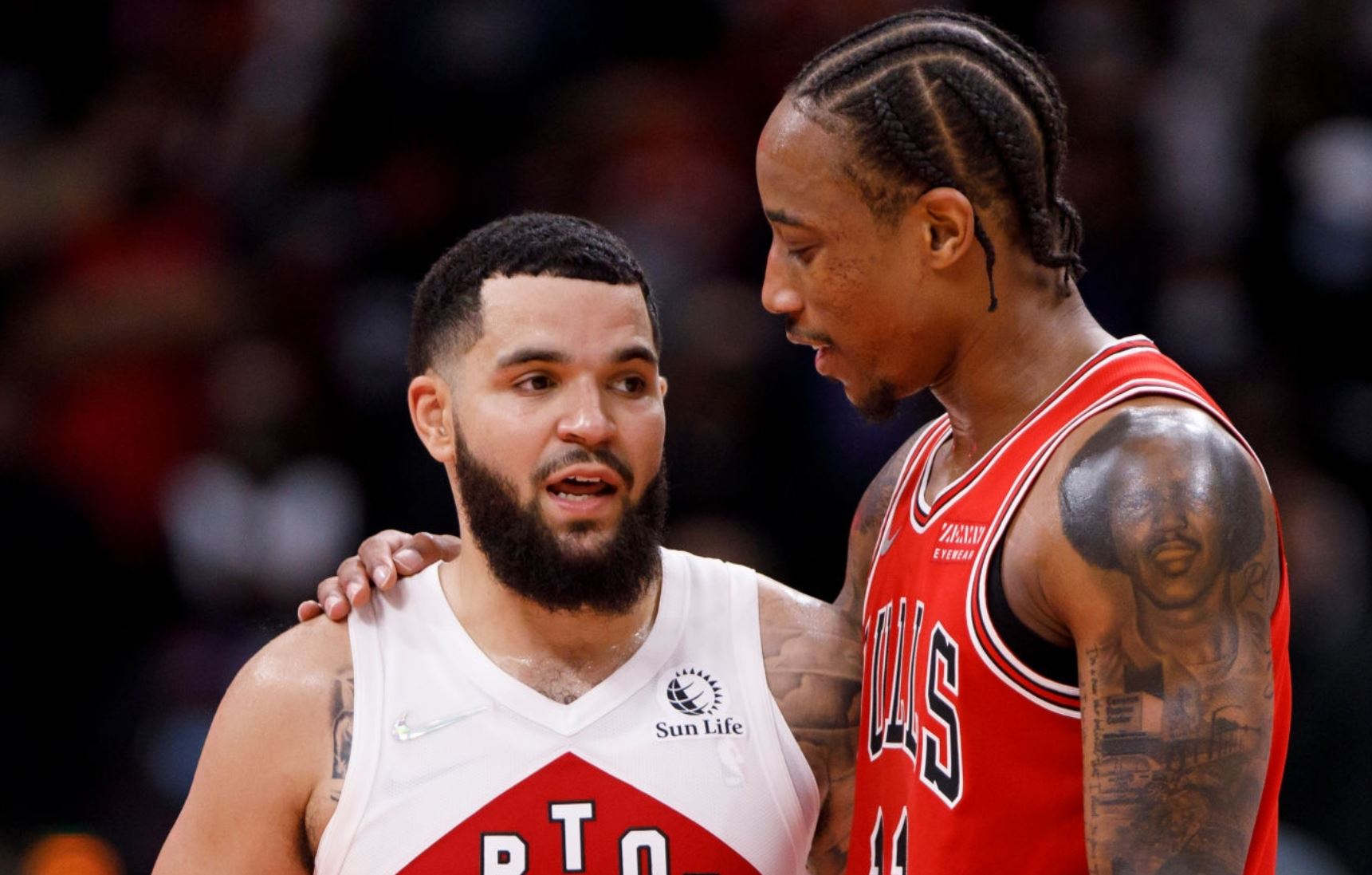Gary Trent jr. was not a good defender with the Toronto Raptors last season. He was in the fifth percentile for his on/off points allowed per 100 possessions, per Cleaning the Glass. That meant that Toronto allowed 7.4 points more per 100 possessions with Trent on the floor versus him on the bench. The last time a Raptor had as horrible an on/off defensive stat was DeMar DeRozan, who ranked in the sixth percentile in 2017-18, with the Raptors allowing 7.5 points more per 100 possessions with him on the floor.
Not to belabour the point — the point here will be to compliment Trent, eventually, but it’s necessary to establish the benchmark he set last season — but Trent last year made a variety of fatal defensive mistakes on an already poor defensive team. He died on screens, fell asleep off the ball, and gambled more than necessary. Opponents shot dramatically more frequently at the rim when Trent was on the floor, and the Raptors didn’t have any compensation or means of stopping those at-rim attempts.
The most important question for the continued relationship between Trent and Toronto after 2020-21 was whether his propensity to worsen Toronto’s defense was because he was young and learning, and Toronto’s defensive scheme takes a long time to learn, or because he was a poor defender. He had the reputation of a good defender coming out of Portland, but his numbers were mixed, with the team neither defending shots better, discouraging shots more often at the rim, or forcing more turnovers with Trent on the floor. His numbers weren’t terrible, but they were kind of meh. He had mediocre individual steal and block rates, to top it off. Furthermore, Portland was not a good defensive team with Trent there; was that because of Trent, or was Trent simply held back by being in a context that limited the impact of his defensive style?
The first few games of the 2021-22 season seem to support Trent. His activity has been disruptive, wreaking havoc on opposing offenses when he’s on the court. When Trent jumps passing lanes or gambles to get his hands into opponents’ handles, he has enormous wings nearby to help clog sightlines for passes, and he has teammates who can cover up any gaps. Playing alongside players like Barnes, Anunoby, and Precious Achiuwa can make defensive aggression at the nail or even extended beyond the three-point arc look pretty darn effective.
That’s not all, though. As opposed to last year, Trent’s gambles are purposeful. He creates chaos, which is often ending up in forced turnovers. He’s currently averaging 4.3 deflections a game, which is fifth in the league. It helps that teammates Fred VanVleet (5.7 deflections a game, ranked first) and Scottie Barnes (3.3 deflections a game, ranked 25th) are near the top, as deflections so often cascade together. It’s also easier to jump into a lane when everyone else on the floor is doing the same and ready to compensate for one another (and is long enough to make opponents’ contingency plans harder to see and execute).
His teammates lurk behind him to plug the gaps. The Raptors’ back line is much faster and more mobile this year than last, and there can be some payoff to aggression, even when it doesn’t result in a direct gain. Even at times when Trent jumped in the path of the dribbler, cutting him off, but opening up a wide-open path to the rim for a teammate, rotations usually walled off the rim. Thus even Trent’s choice that seem not to create advantages initially led to a heavily contested at-rim attempt, which missed.
A small handful of games is certainly not enough to definitely disprove your priors. That could be because it’s hard to admit you’re wrong, or it could be because large sample sizes are more trustworthy than small ones. (Or both.) But the context that surrounds Trent’s defensive style has changed. The team is much better equipped to take advantage of his aggression and helter-skelter gambling.
Beyond the context, Nick Nurse has noticed a change in Trent’s own defense. “I’ve been really happy with his defensive presence,” said Nurse. “I think he’s bringing much more of an effort in his on-ball defensive presence than we noticed last year.”
Trent does seem to have improved. He fights through screens with more intensity. The Raptors have asked him to battle extremely tough matchups (and here’s where the comparison with Norman Powell becomes almost eerie), including spending a huge number of possessions on Al Horford against the Boston Celtics so that Scottie Barnes and OG Anunoby could stick with Jaylen Brown and Jayson Tatum.
In other words, Trent has improved, and the team has improved in its ability to capitalize on him on the defensive end. That explains Trent’s jump from the worst on/off defensive rating since DeRozan. However, those same metrics don’t say that Trent has been a superstar; in fact, his current on/off defensive rating this season is +1.2 points per 100 possession, which is slightly below average, and perhaps even understates his true ability. That’s where the early-season caveats rejoin the conversation. He had one of the best on/off defensive ratings on the team after two games, and it sank to below average after three. He has thus far more than doubled his 2.0 deflections per game last year; staying at that higher level would be a truly outrageous improvement, indeed. The point is that the numbers are perhaps less meaningful sp early in the season unless there’s prior evidence supporting them. the Raptors allow opponents to shoot better when Trent is on the floor, but they give up fewer offensive rebounds and far few free throws. Those latter categories are strengths Trent always had in Portland. That’s something upon which a solid defensive identity can be built.
There is some cause to believing that he can be a positive force on the defensive end even if the numbers are wacky and should settle elsewhere than they are now. There’s even more cause to believing — and this is probably where I stand, on the most milquetoast ground I can find — that a team can have a good defense with Trent on the floor. The Raptors have a top-10 defense through three games, and they’ve done that starting Trent twice and playing him big minutes. There’s no reason that can’t continue. Milquetoast though that point may be, it’s worth mentioning that it would have been lunacy to have said so last season.



